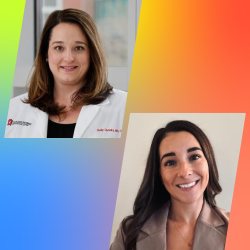Even in times of great adversity, true professionals rise to the occasion. A recent and inspiring example comes from New Hampshire, where Dartmouth-Hitchcock Health just helped open two Phase III COVID-19–related therapeutic studies in six business days. The Gilead-sponsored studies, one of patients with moderate COVID-19 and the other with patients suffering more serious symptoms, are evaluating the safety and antiviral activity of Remdesivir (GS-5734™) against the condition.
The swift launch represents “a true team effort on every level with a focus on research associated on pandemic as a priority” says Leigh A. Burgess, vice president for research operations at Dartmouth-Hitchcock Health. Upon opening the study, many patients were already eligible and enrollment began. The studies will most likely fill quickly as the pandemic numbers increase, so time is of the essence when activating.
For Burgess, clear communication and prioritization were the keys to success in the herculean effort. “It’s been an inspiring experience we can all learn from” in future trials launched under less duress, she says. The team members “rose to the top of their performance,” united by a spirit of mitigating the COVID-19 health crisis, Burgess says.
As Burgess and team review what worked well during the process, she says it’s clear that trials—especially their launches—are often slowed down by a lack of a central contact or “concierge” to manage the process. “You need someone skilled in studies who can also follow up seamlessly across the activation process when needed,” she says. “We need to make it easier for our [principal investigators] and teams.”
Another tip: Encourage everyone to think through what they are doing before they send another e-mail. “Too many handoffs and too many e-mails that generate more e-mails” inevitably slow down the process, Burgess says. “We have to break through the various activation channels and create ‘No E-mail’ zones,” she says. “We can all be at fault here by sending quick e-mails, but we can all be part of the solution, too,” she adds.
Burgess saves special praise for the study and central team, including Principal Investigator Richard Zuckerman, MD, MPH; Jami Wilson, BSN, RN, Office of Research Operations (ORO), Director of Research Nursing & Clinical Research Unit; Crystallee Newton, BA, CCRP, Supervisor in the ORO Clinical Research Unit; Research Nurses Sara Metzler, BSN, RN, and Samantha Shipman, RN; Christine Busby, CPC, Senior Manager for Business Operations; Barbara Moskalenko, Director of Research Operations; and Candi Loeb, MS, CIP, Director of the Human Research Protection Program.
Author: Michael Causey



